Lunana: Bhutan’s first Oscar nominee explores ‘happiness index’
The tiny Himalayan nation’s Lunana: A Yak in the Classroom is competing for the Best International Feature Film award.
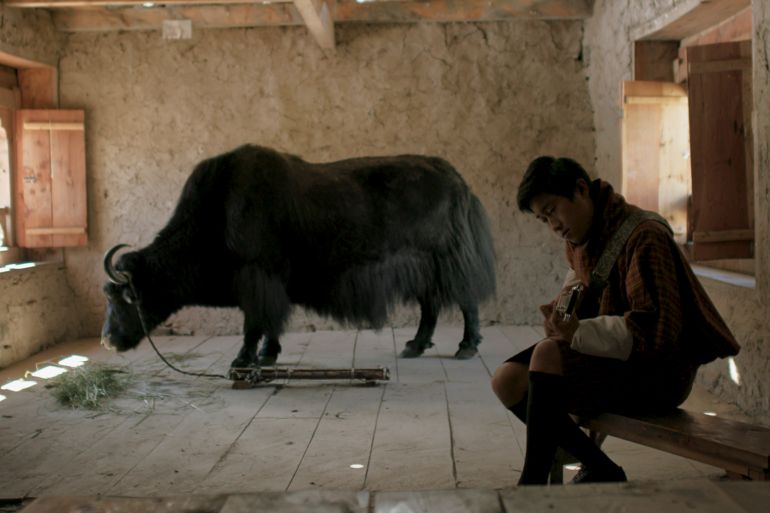
New Delhi, India – Governance in Bhutan is guided by the Gross National Happiness index, a paradigm for holistic development and a measure of collective wellbeing of people in the tiny Himalayan kingdom.
The index was one of the catalysts behind Lunana: A Yak in the Classroom, the country’s first-ever nomination in the Best International Feature Film category at the 94th Academy Awards. Lunana competes with Drive My Car (Japan), Flee (Denmark), The Hand of God (Italy) and The Worst Person in the World (Norway) for the top honours at the Oscars.
Keep reading
list of 4 itemsAcademy Awards 2022: full list of Oscar nominations
‘Felt like a bullet’: Bhutan PM mourns kingdom’s rare COVID death
Home in India, job in Bhutan: Border shutdown hits Assam workers
The 109-minute Bhutanese film is about young Ugyen, who has been sent off by the authorities to teach children at Lunana, one of the remotest high-altitude schools in the world. An arduous eight-day trek later, he finds himself stationed in a place with inclement weather and a lack of electricity and other basic amenities.
The film’s tagline: “Find what you seek, in a place you never expected.”
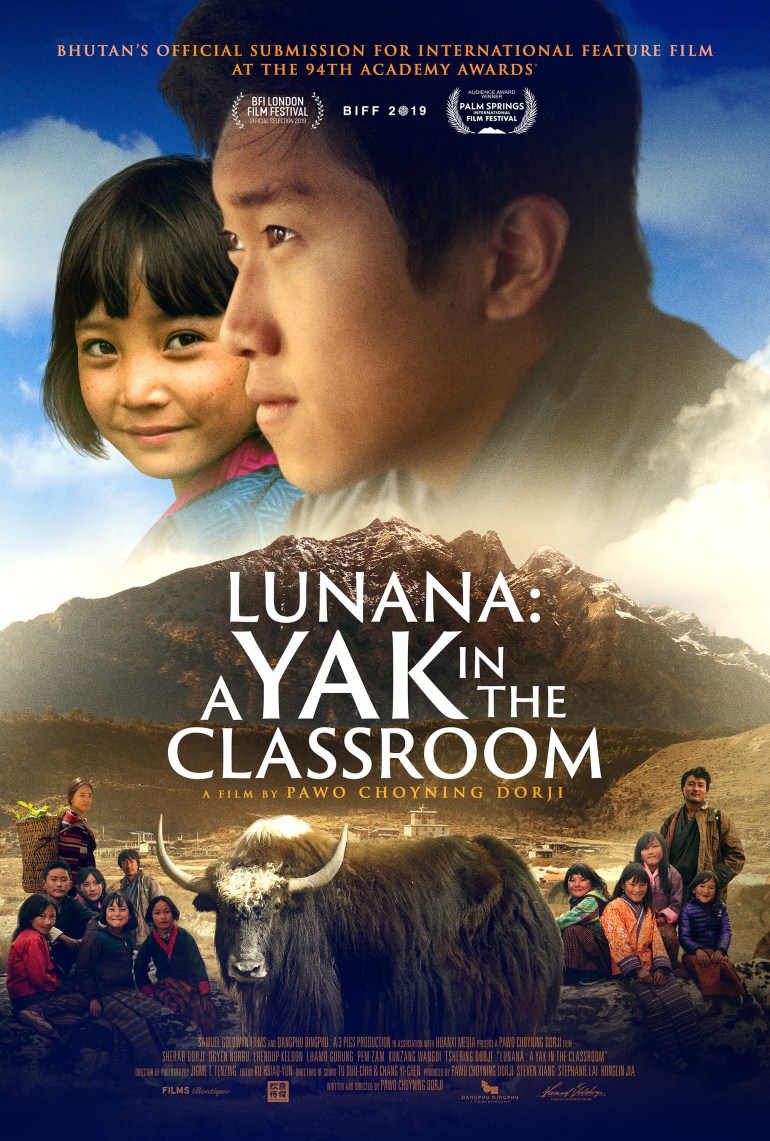
Lunana proves to be transformative for Ugyen as he learns profound life lessons from the simple, poor but generous locals.
The film’s director-writer-coproducer Pawo Choyning Dorji told Al Jazeera he found himself probing the idea of happiness while conceptualising the film.
“Thousands are leaving Bhutan, looking for happiness elsewhere. I wanted to create a story where we take the protagonist to the opposite end,” he said.
“If people are looking for happiness in modern, urban societies of the western civilisation, can we find that happiness in the most remote, in darkness, in the shadows?”
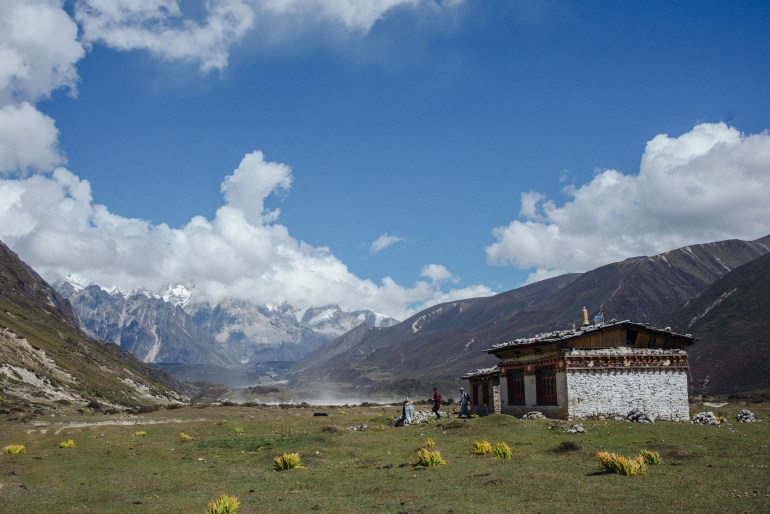
Dorji said a seminal artistic influence for him was the documentary School Among Glaciers, about a schoolteacher’s 14-day journey on foot to Lunana, which lies in the Gasa district.
While toying with the idea, the 38-year-old filmmaker met a teacher, Dechen Tshering, who narrated his experiences of working in schools in Bhutanese highlands – how he had put a yak in the classroom and had to write with charcoal on the wall in the absence of a blackboard.
Dorji said he was mesmerised by the account. “The photographer in me started visualising these scenes for the screen,” he said. And Lunana started taking shape.
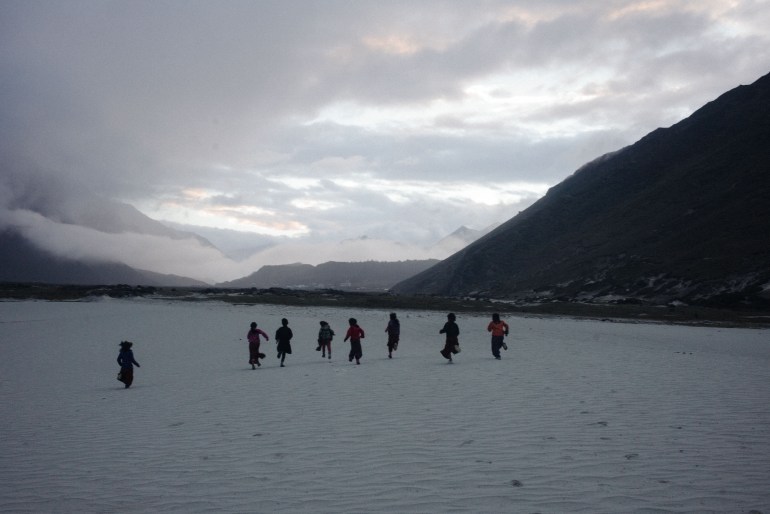
So, what sets the film apart?
Dorji says Lunana is not just a good-hearted, warm and affectionate piece of filmmaking, but the “hope and succour” it offers resonate even more in “our devastating and desolating” pandemic times, propelling the film on what he calls an “unanticipated journey” to global recognition.
Dorji takes the film’s appeal back to Buddhist philosophy: how all beings are in a perpetual state of movement, with the sole purpose of finding happiness.
“Because of the pandemic, there is separation. Boundaries have come up. People aren’t as free,” he says.
‘Liberating, freeing purpose’
The film reflects on and celebrates the quest for belonging, togetherness and community. There is universality in the particular and particularity in the universal, says Dorji.
The story-telling tradition intrinsic to Bhutanese culture inspired the filmmaker.
“In our language when we say, ‘Tell me a story,’ it is ‘Untie a knot for me please.’ The act of storytelling in Bhutanese culture has this liberating, freeing purpose. I was drawn to that.”
He became a photographer because he could see how powerfully images could tell a story.
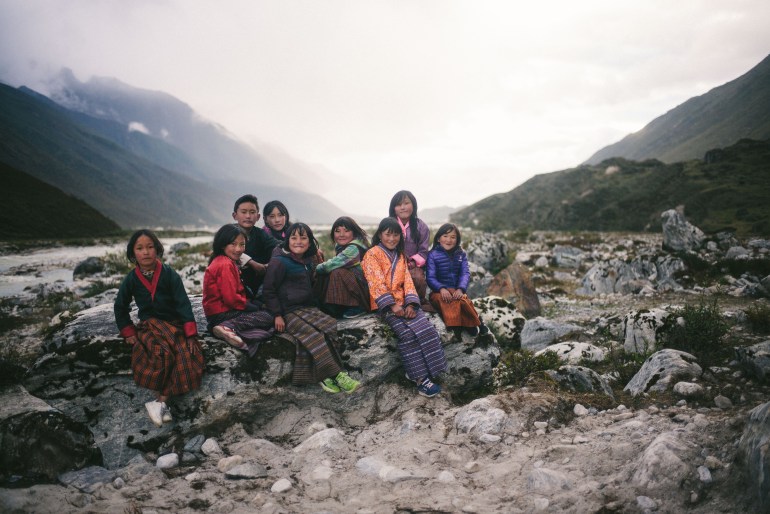
Lunana is inspired by true stories Dorji collected across Bhutan. “Those who know me as a photographer will see that a lot of my memorable still photos transitioned into movie scenes, became characters and storylines,” he says.
Dorji says Bhutan’s iconic filmmaker and Buddhist lama Khyentse Norbu was the “default film school” he graduated from.
“He is not only my filmmaking mentor, but also a spiritual teacher,” says Dorji who worked as his assistant in his 2013 film, Vara: A Blessing, and was a co-producer on Hema Hema (2016).
“It was like a crash course in filmmaking,” says Dorji.
Incidentally, Norbu’s Phorpa (The Cup) was the first-ever official Bhutanese Oscar submission in 1999. Lunana is the second after 23 years.
“He [Norbu] inspired filmmakers to dream that we can make Bhutanese movies that can go beyond Bhutan,” says Dorji.
Apart from Norbu, Japanese filmmaker Hirokazu Koreeda also shaped Dorji’s cinematic sensibilities.
The making of Lunana parallels the journey of its protagonist: It was tough, but rewarding. The idea of shooting the film in Lunana seemed logistically impossible. How does one power the camera and lights without electricity?
“We had to build everything for ourselves. We had to install solar chargers and batteries, transport our food and even carry firewood since Lunana is above the tree line,” says Dorji.
The crew survived up there for 75 days without a shower or proper beds, and Dorji thinks it helped the film gain authenticity.
To make the acting feel real, Dorji tried to cast people – mostly non-professional or first-time actors – whose lives matched their characters’. Sherab Dorji who plays Ugyen used to sing in bars while waiting for a visa to go to Australia to pursue his musical career.
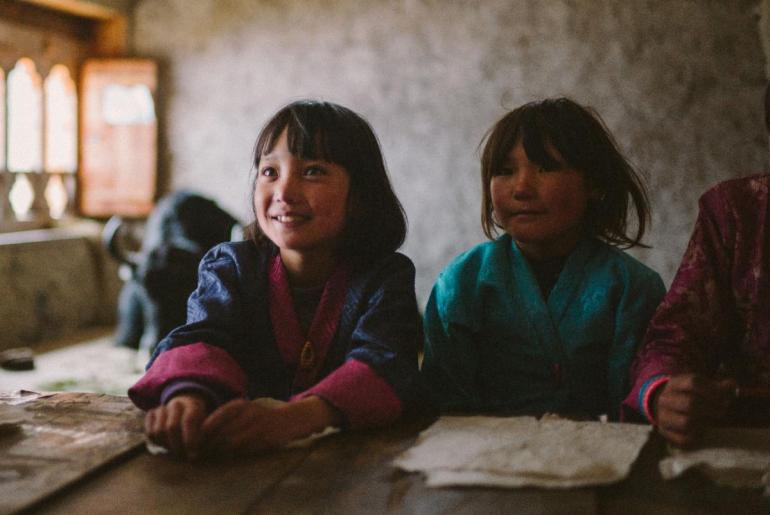
As in the movie, the innocent and charming schoolgirl Pem Zam – the “heart and soul” of the film, according to Dorji – comes from a broken family with an alcoholic father and an absent mother. The child actress lives with her grandmother.
Pem Zam has never been out of Lunana. She does not know what it is like to watch a movie in a cinema. None of the villagers has been able to see their film because of Bhutan’s strict COVID-19 restrictions.
However, ironically, as the film’s crew was leaving Lunana, telecommunication workers came to the village to install telephone towers. Lunana now has internet and the villagers have heard about the success of the film and seen clips of it.
So, if Pem Zam can’t make it to the red carpet at Hollywood’s Dolby Theatre on March 27, she can watch the ceremony in remote Lunana and root for the landmark film along with the rest of her countrypeople.